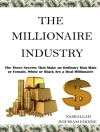In the 1960s and ’70s, a diverse range of storefronts—including head shops, African American bookstores, feminist businesses, and organic grocers—brought the work of the New Left, Black Power, feminism, environmentalism, and other movements into the marketplace. Through shared ownership, limited growth, and democratic workplaces, these activist entrepreneurs offered alternatives to conventional profit-driven corporate business models. By the middle of the 1970s, thousands of these enterprises operated across the United States—but only a handful survive today. Some, such as Whole Foods Market, have abandoned their quest for collective political change in favor of maximizing profits.
Vividly portraying the struggles, successes, and sacrifices of these unlikely entrepreneurs, From Head Shops to Whole Foods writes a new history of social movements and capitalism by showing how activists embraced small businesses in a way few historians have considered. The book challenges the widespread but mistaken idea that activism and political dissent are inherently antithetical to participation in the marketplace. Joshua Clark Davis uncovers the historical roots of contemporary interest in ethical consumption, social enterprise, buying local, and mission-driven business, while also showing how today’s companies have adopted the language—but not often the mission—of liberation and social change.
Jadual kandungan
Acknowledgments
List of Abbreviations
Introduction
1. Activist Business: Origins and Ideologies
2. Liberation Through Literacy: African American Bookstores, Black Power, and the Mainstreaming of Black Books
3. The Business of Getting High: Head Shops, Countercultural Capitalism, and the Battle Over Marijuana
4. The ‘Feminist Economic Revolution’: Businesses in the Women’s Movement
5. Natural Foods Stores: Environmental Entrepreneurs and the Perils of Growth
6. Perseverance and Appropriation: Activist Business in the Twenty-First Century
Conclusion
Notes
Index
Mengenai Pengarang
Joshua Clark Davis is assistant professor of history at the University of Baltimore.












